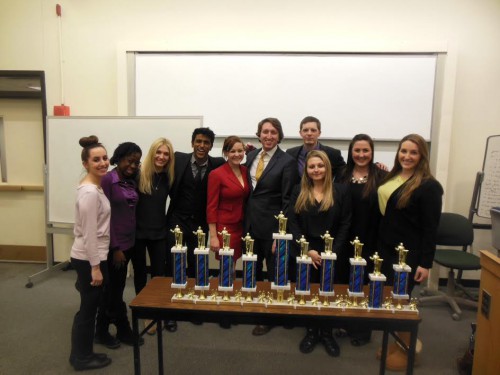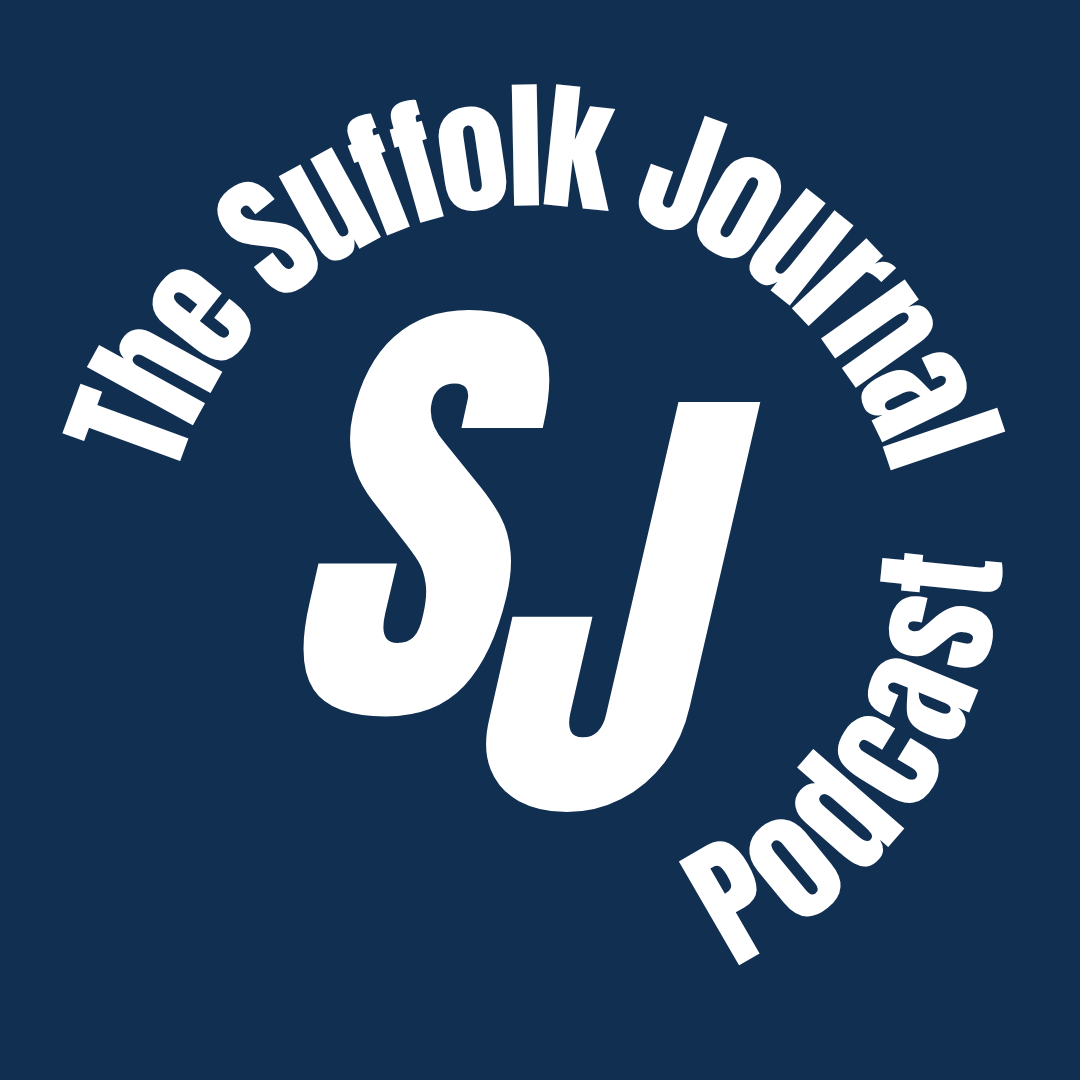About once every week, the forensics, or speech and debate, team meet to discuss topics and practice speaking styles. Last August, it started the year off with all new members, except for maybe one or two returning students, and a new team leader, communications Professor Jodi Nevola. This pristine team went on to win the northeast regional championship, competing against schools like St. Anselm College, Bridgewater State University, Emerson, Lafayette College and Suffolk County Community College during its season.
“We were all new last semester, and we had to go over everything. Professor Nevola allowed us to pick our speaking styles,” said broadcast journalism major Siobhan Sullivan. These styles can range from persuasion and informative speeches, to after dinner speaking (ADS) and impromptu. They can prepare all semester, or in a matter of minutes, depending on the speaking style.
“As the coach, I try to help each student understand what each of our 11 different events are like. It is up to the individual competitor to decide what events they will compete in,” Nevola said. “Then, together, we hone their skills to become as tournament ready as possible.”
Evidently, the forensics team can be beneficial for students across all majors, and it has a healthy number of broadcast journalism majors.

(Photo courtesy of Suffolk University)
Broadcast journalism major Jared Doherty said being a part of the forensics team reflects his lifelong relationship with speech.
“In high school, I was told that I was a great speaker. I would usually get good grades on my speeches,” he said. Doherty said his college speech class was challenging, but he has since been able to improve his speech by way of his speaking style: impromptu speaking. He likes to incorporate humor and interweave real life, handy examples, or “stock ideas” to help with the limited preparation allowed in the impromptu speaking style. On the topic of nervousness, he advises students to practice out loud, and visualize what they are going to say.
“It sounds cliché, but preparation really is key to giving a good speech,” Doherty said. Likewise, Sullivan encourages memorizing what needs to be said and preparation through research.
The forensics team has been at Suffolk for almost six decades and has served as a tool for undergraduate students to sharpen their speech skills, travel and network with other students and professionals. The team has traveled to Washington D.C. and New Orleans in the past, and, depending on the semester, students are able to earn up to one credit for participating.
“For next year, I want to continue to help each member of the team fulfill their individual educational goals. Additionally, I want to continue to connect with local alumni of the Suffolk forensics program to come back to reconnect with each other and inspire our new members,” said Nevola. She also wants to continue to travel with the team around the country, developing each members’ communications skills and enhancing the forensics program.
“If you’re someone who wants to get better at speaking, join us. If you’re someone who takes speaking seriously, then you should join us, too,” said Sullivan. Students interested in joining should contact Nevola, or join in the beginning of the fall semester.












